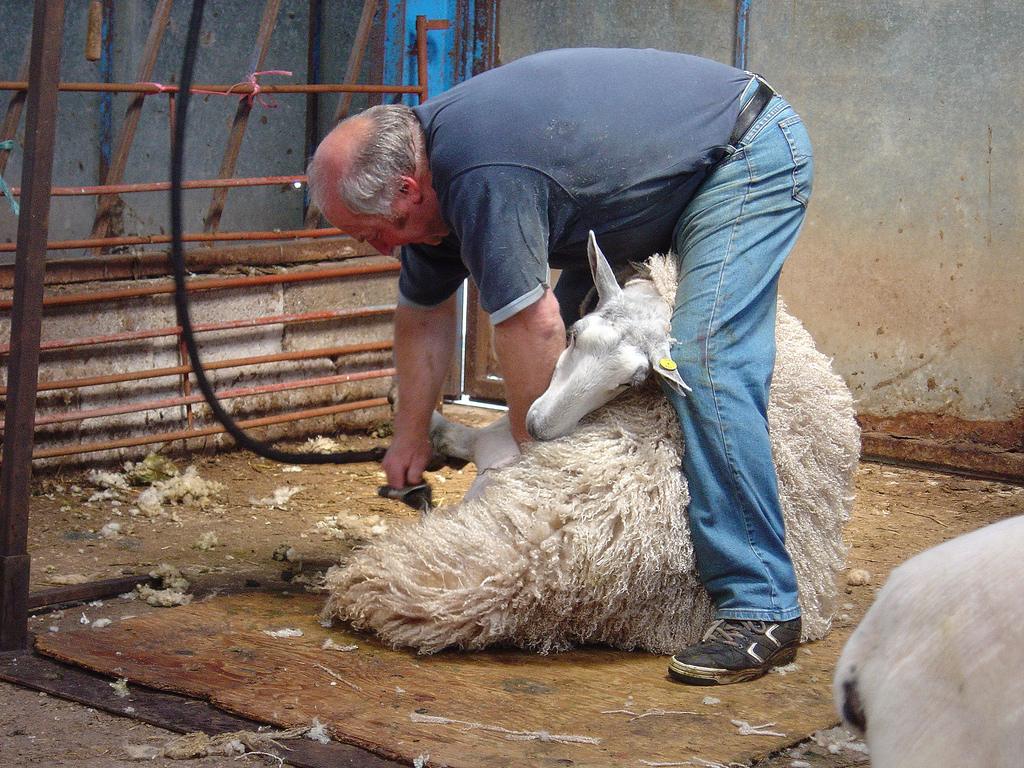
The farm bill is back, and many feel this version protects biotech giants like Monsanto and harms organic and family farmers
Members of the House and Senate met recently to begin the process of reconciling their respective versions of the massively thick farm. So far, what Congress is considering could be deemed the agricultural version of Clint Eastwood’s cult classic, The Good, The Bad, and The Ugly.
The good in the bill involves a section designed to offer greater protection to honeybees and other integrally important pollinators.
As previously reported by Off The Grid News, honeybees have been dying off at alarming rates since 2005. Colony collapse disorder has frequently been blamed, at least in part, on chemical pesticides such as Monsanto’s Roundup Ready. Many scientists and agricultural experts feel that biotech products and GMO seeds are the primary culprit of the massive amount of pollinator deaths.
New Survival Seed Bank™ Lets You Plant A Full Acre Crisis Garden!
The Center for Food Safety had this to say about the protections for honey bees inside the farm bill:
As we know, over the past decade, there has been an alarming decline in honey bee populations around the world, with many colonies collapsing mysteriously. The House provision would be a significant step towards ensuring the long-term viability of populations of honey bees, wild bees, and other beneficial pollinators by greatly improving federal coordination in addressing the dramatic decline of managed and native pollinators as well as directing the government to regularly monitor and report on their health.
The bad inside the farm bill involves a loss of funding for organic farmers. The National Organic Certification Cost Share Program (NOCCSP) was initiated in the 2002 farm bill. The agriculture bill has routinely offered organic certification cost share for farmers. The short-term version of the farm bill extension which was enacted at the beginning of 2013 did not include the NOCCSP program.
“No other sector of agriculture was as hard hit by this funding hiatus as the organic sector,” the Center for Food Safety noted in a recent release. The organization added that renewing funding for the NOCCSP program and related projects is critical for organic agriculture farms in the United States.
The ugly involves the thwarting of states’ rights. The highly controversial House of Representatives provision initially authored by Representative Steve King negates both state and local agricultural production and manufacturing laws. If King’s provision remains in the farm bill, even laws approved by voters via ballot amendments or respective state legislatures, can be blocked by the federal government.
Organic Consumers had this to say about Representative King’s farm bill provision:
The King Amendment is intended to block California from implementing a law, already passed, that requires farm animals to be given enough space to spread their limbs and turn around. But the way the amendment is written, it would take away states’ rights to pass laws on food and farming, including GMO labeling laws like the ones passed earlier this year in Maine and Connecticut, and the citizens’ initiative we’re working so hard to … The King Amendment is only in the House version of the bill, so the conference committee could choose to drop it. And the committee is a lot more likely to do that if members get thousands of phone calls from constituents warning them not to pass this anti-democratic law that helps factory farms, hurts animals and takes away states’ rights to regulate food and farming.
States have always held the right to impose standards on agricultural production and manufacturing as they see fit. The dictates in the farm bill are yet another example of massive federal government overreach, critics say.
How do you feel about the farm bill?











